Learning to See God in All Things: The Story of the Wonder Class
The Dream
For years, TPH middle school teacher Eunsub Cho has wrestled with a provocative question: What would it look like to teach science through the lens of wonder? “Wonder is a word that was big in my journey as a science teacher,” Cho shared. “It’s a way of coming to see what science is, for a person of faith. Through the activity of science, we get to see the beauty of God’s creation. As we do that, we get to be filled with wonder. And that’s something I wanted to pass on to students.”
Through these years, Cho incubated the idea with elementary school teacher Aubree Hofman and Middle School Director Antonio Tendero. Together, they realized that the concept of “Wonder” extended beyond the science classroom. “We began to dream about a micro-school within The Potter’s House network focused on developing 21st Century skills in the disciples of a 1st Century rabbi,” Tendero shared. This new program would combine science and spiritual formation as two interlocking ways of “seeing, noticing, and paying attention.”
Teaching Wonder
Cho feels that middle schoolers are at an ideal stage of development for a program like this. “Middle schoolers have a posture of curiosity. They are naturally inclined to ask questions. They have this drive to explore. The intent of the Wonder class is to give them a platform to be explorers and discoverers,” he explained. “They’re also in a stage where they are making sense of what their faith means to them.”
This year, Cho’s 6/7th-grade homeroom class served as the “pilot” for the Wonder program. The new class focused on several hands-on projects that wove together scientific exploration and spiritual practices. First, they researched the Plaster Creek Watershed—which is adjacent to the Roosevelt Park Campus—and hosted a “Wonder Zoo” for younger students, to show them the various organisms that make up the ecosystem near the school. 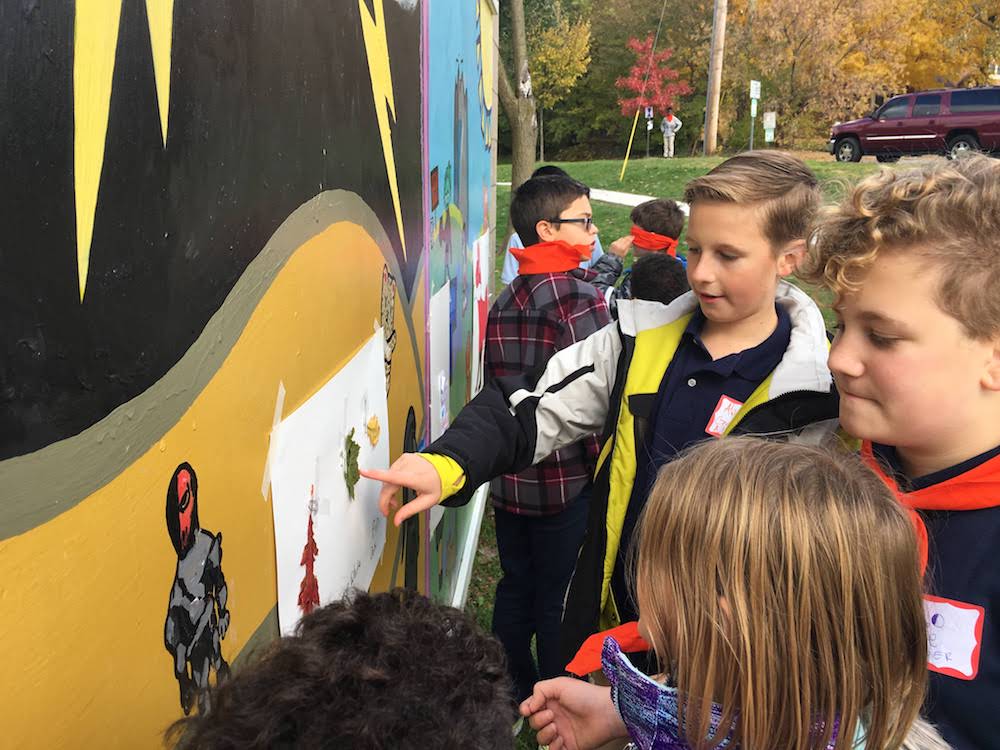
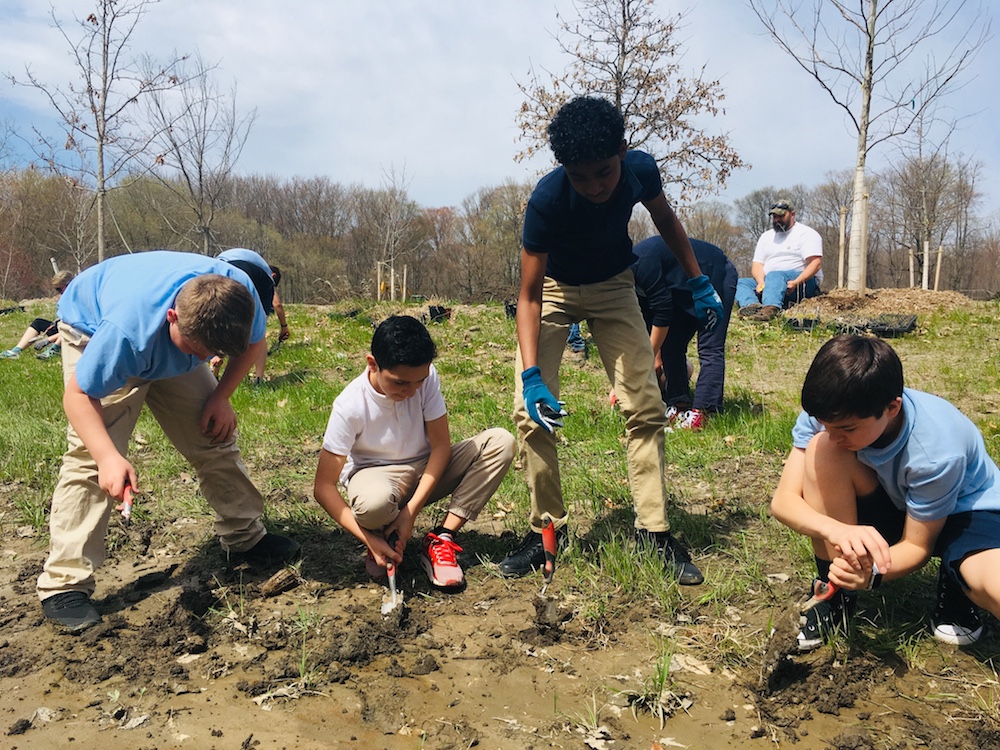
The class also learned from the Plaster Creek Stewards of Calvin College, who taught them about how human beings are part of a “web of relationships” in nature, and how human choices can impact—and have impacted—living and non-living things, in either positive or negative ways. This was an eye-opening moment for many students, Cho remembered. Sixth-grader Aniya put it well: “I started thinking about how I care about the world around me, and not just myself.” After the event, Cho led his students in creating “prayers of lament,” modeled on the Psalms, and led a prayer service where students grieved the ways humans have damaged God’s creation, asking God to help them be agents of restoration and reconciliation.
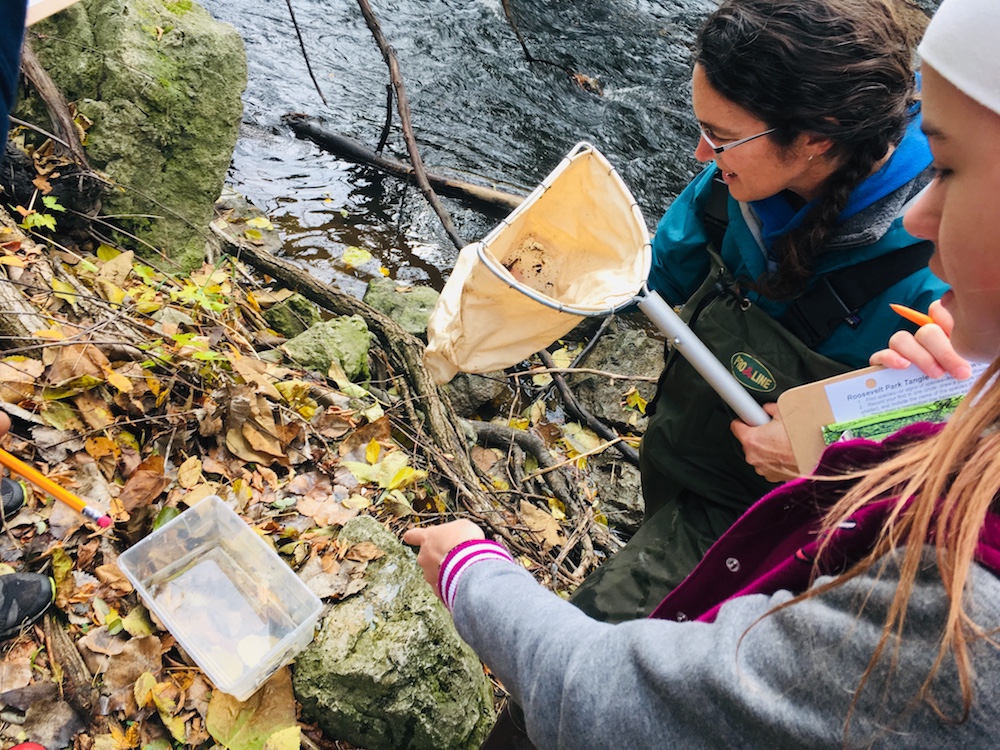
As a capstone project, the Wonder class planted and tended a small vegetable garden behind the school, assisted by parent volunteers and Partners. Together, the class meditated on the beauty of growing life from seeds, illuminated by the science of plant development and the many biblical metaphors about seeds and plants. For some students, it was their first opportunity to plant something and see it grow. Cho distinctly remembers a moment when he took the students down to see the progress of the garden, and a spontaneous cheer broke out as they looked over the growing plants. Their science lessons had leapt off the page and turned into an experience of wonder and awe.
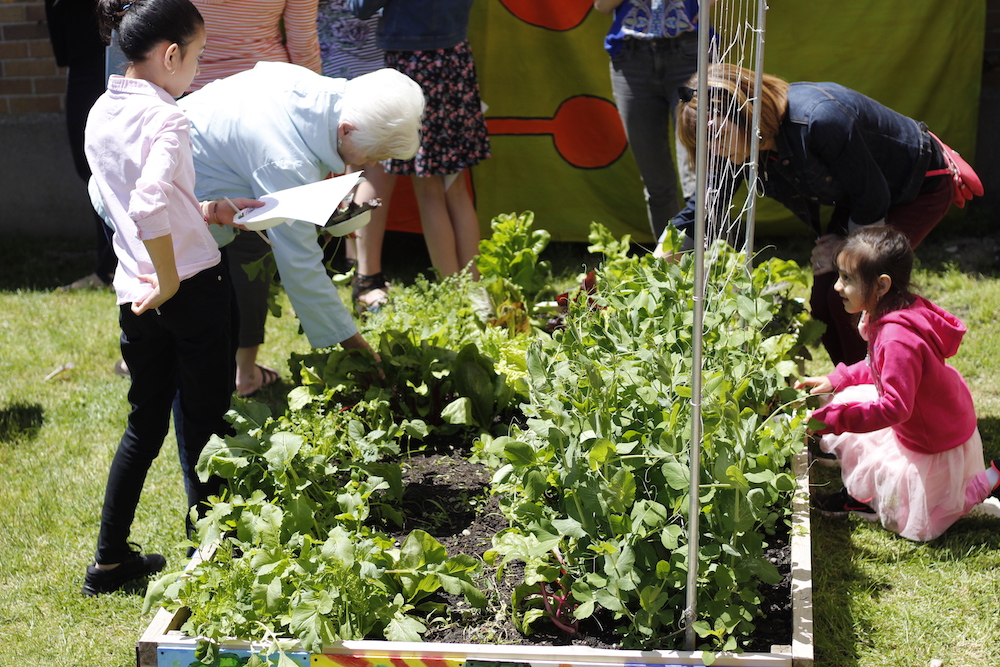
When the garden was ready for harvest, students invited parents, teachers, and community members to a “garden party” to enjoy the fruits of their labor. While the guests enjoyed pizza topped with freshly-picked garden greens, students and parents shared the impact of the program. “What is different about Wonder is that it is a wildly fun and detailed journey which we see from many viewpoints,” Ezra reflected. “We go through a lot of different kinds of topics and they all end up at God’s creation.”
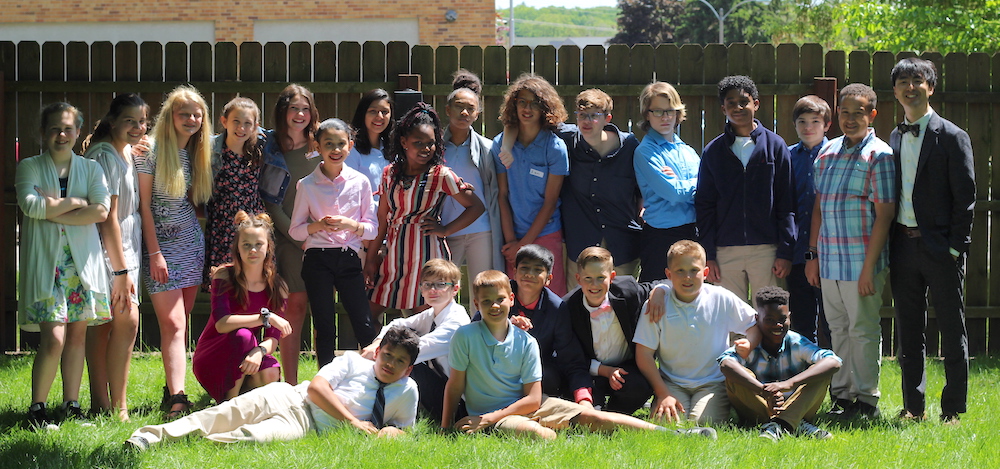
The Future of Wonder
Encouraged by the success of the Wonder class, Cho and Tendero are planning to officially launch the Wonder Academy during the 2019-2020 school year. The program will be expanded from a homeroom period to a substantial portion of the school day, for a group of 6th and 7th-grade students. The concept of wonder will be interwoven into science, reading, writing, Social Studies, and Bible lessons. Students will engage in spiritual practices and disciplines alongside their studies.
The most important goal of the Wonder Academy, for Cho, is for “students to learn that their faith is something they take with them into the classroom. It’s something that frames everything they do and makes sense of everything they see.”
Photos of Plaster Creek activities and Wonder Zoo courtesy of Eunsub Cho and Andrea Lubberts
